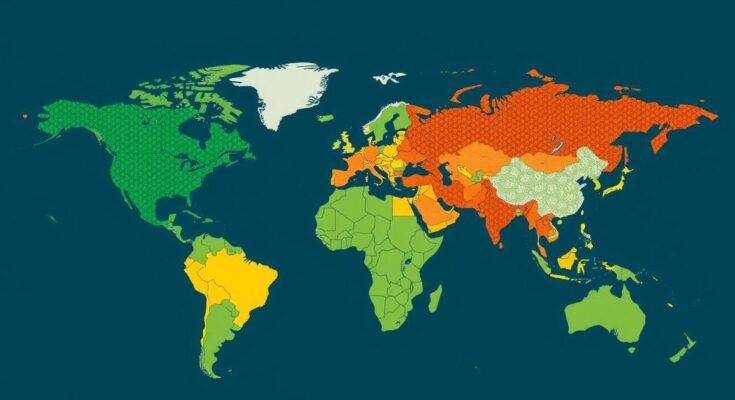Wealthier nations are beginning to compensate poorer countries for climate change damages, as exemplified by payments to those affected by Cyclone Freddy in Malawi. While approximately $720 million has been pledged to support recovery, experts caution this may be insufficient due to increasingly severe climate impacts. Ongoing negotiations at COP29 address how much will be allocated to developing nations as part of a broader climate finance package. The urgency for more substantial contributions is growing, as future funding needs are projected to reach $250 billion annually by 2030.
Richer nations are beginning to provide financial support to poorer countries suffering from the consequences of climate change, highlighted by Cyclone Freddy’s disastrous impact in Malawi. The cyclone resulted in overwhelming rainfall, leading to significant destruction of homes and livelihoods. In response, affected individuals like Christopher Bingala received cash compensation specifically designated for loss and damage, enabling them to rebuild their lives.
Although this initiative has seen the commitment of approximately $720 million from wealthier countries, experts caution that such pledges will likely be inadequate given the intensifying frequency of climate-related disasters. At the ongoing COP29 summit in Azerbaijan, discussions are underway regarding further compensation measures and financial obligations regarding climate impacts.
The funding enabled Bingala and numerous other families to cover basic needs and invest in their futures, illustrating the acute necessity for robust climate finance systems. However, the disbursement and allocation of the pledged funds remain a critical concern as many low-income nations grapple with escalating humanitarian crises fueled by climate change.
As the situation intensifies, countries like the Bahamas warn that existing national debts are often exacerbated by the economic toll of climate catastrophes, urging for more substantial contributions from affluent nations. The urgency for effective and timely funding to address loss and damage is becoming increasingly pivotal as projections indicate related costs could surge to $250 billion annually by 2030. Ultimately, rich countries may find that their own interests are at stake, as climate challenges transcend borders and threaten global stability.
The article sheds light on the emerging trend of wealthier countries providing financial compensation to lower-income nations specifically afflicted by climate change-related disasters. It emphasizes the disparity where poorer countries bear the brunt of climate impacts despite their minimal contributions to global greenhouse gas emissions. Cyclone Freddy serves as a poignant example of the tragic consequences these countries face, along with the newly established funding mechanisms to address these losses. The growing recognition of the need for loss and damage funding highlights systemic inequalities in climate vulnerability and the global economic ramifications of climate change. Discussions at international summits, such as COP29, reflect an evolving understanding of international climate finance responsibilities.
In summary, the compensation initiatives initiated by wealthier nations mark a crucial step in addressing the disproportionate impacts of climate change on poorer countries. As exemplified by the experiences of individuals like Christopher Bingala in Malawi, timely and adequate financial support can facilitate recovery and resilience in the face of devastating climate events. Nonetheless, the urgency for comprehensive climate finance strategies remains, particularly as the frequency and intensity of such disasters continue to escalate worldwide. The call for richer nations to embrace their responsibility in contributing to loss and damage funding reflects a growing acknowledgment of shared global stewardship in addressing climate change.
Original Source: www.wypr.org




